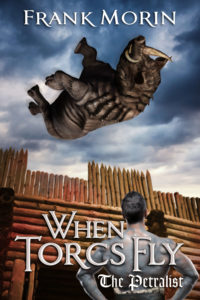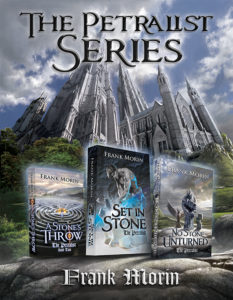We all want fans, you know, those people who love our books enough to buy them not only for themselves but for others too. Plus, they spread the word and soon, your book, your writing are known to the world. But fandom doesn’t happen overnight. How do you go from the cold calls of signing books in a book store or ebook promotions, convincing people to not only buy your book but to become ardent fans?
Part of that answer lies in understanding what each stage of fandom means and requires. Yup, I said the word stages! Just like writing a novel is a progression of stages (idea, concept, premise, outlining/plotting, revision, beta readers and more revision), so it is to create a fan base. The other part of obtaining readers and converting them into fandom, is to understand that this is abusiness and as a business, you have to have goals. Is it to get an email list and 50 fans this year? Is it to have 1,000 fans spending $30 a year on your books and products (hey, that’s $30,00 a year, doing something you love!)?
Any good business plan understands its market and has a systematic approach to reaching that market. So understanding market segments makes that job much easier. Read to teh end where aI reveal the one category of fan most writers tend to forget about.
For transparency, I must tell you that I didn’t come up with these amrket segments/stages of audience myself. I got them from Monica Leonelle who has a brilliant course for writing and marketing. You can find her and more information at http://monicaleonelle.com/. Her books Prosperous Creation and Get Your Book Selling: Jumpstart Your Sales With a Simple Plan that Just Works are great reads to understand marketing and sales.
There are 10 segments or stages of audience. When I first read this, it felt daunting, but now, it’s a thing to know because when you’re aware of the stages, you’ll know how to approach and therefore meet, the needs of the customer.
Stages 1 – 5: GETTING READERS TO PURCHASE YOUR STORY
As fiction writers, our goal is to find readers for our book or series. Once you get through these first steps, the conversion from buyer to fan is much easier. There may be a lot of speaking one-to-one at book signings, conventions, sales tables, at parties, and other venues. It may mean readings at the public library, talking to friends about leaving reviews on Good Reads, Amazon and other ebook sales and review sites. It’s a lot of work, but if you are aware of the stages, of what you must do, then each reader you win over becomes a big victory indeed.
A couple of notes: in these first stages, consider having an email list so you can send out notices or newsletters about offers, promotions, new book releases and book signings. Asking people to sign up is a great way to make their committing to you and your work easier.
Stage 1 – Target Audience: Reads books like yours but hasn’t heard of you.
This is the pool from which you must entice people to buy your novel. Know the sub genres, read the reviews and back cover blurbs of the best selling novels. Note the style of cover art. Become known in fan circles by contributing (not spamming or pushing your product) to discussions. Create buzz by doing things like having your social media circles choose a cover for your upcoming book.
Stage 2 – Lead: Has heard of you but is not actively considering your books
This person knows that you write books similar to what they read, but not much more. So, what can you do to provide that nudge to the next stage? What psychological triggers or marketing materials can you add? Part of these answers many come from understanding your target market. You’ve introduced your work to them, now you need them to consider your books. Options to entice may include a free sample, or a discount on the first book of the series.
Stage 3 – Prospective Reader: Actively considering your books but is looking for more information
This prospect needs more information which can be given in the form of a synopsis, background information on your website, a sample read (Amazon’s ‘Look Inside” provides this service), or a freebie link.
Stage 4 – Trial Reader: Downloads a sample of your book or freebie
This is great! Now, is the time the prospective buyer decides of you’re the writer for him or her. There’s not a lot you can do because you’ve made sure you’ve put out your very best product! However, if you’ve giving a sample read, make sure it ends on a cliff hanger.
Stage 5 – Prospective Customer: Is at buying decision, usually on the product page
They’re on your website, the cursor ready to hit BUY. What can you do? Feed on their primary needs as a buyer – is it the best thriller ever, a romance that will captivate their hearts, the hottest trend on… you get it. Appeal to the emotions, the reason why they should buy your book.
STAGES 6-10 BUILDING YOUR COMMUNITY
Once people are readers, it is much easier to give existing customers more and to keep them excited about buying your stories and products. These stages are about supporting the fans who support you. This can take many forms such as new novels (series or stand alone), give always, autograph sessions, information either about yourself or the novel on your website, an exciting newsletter/social media presence which lets fans know what your up to or talking about something which excites them like your favorite chocolate of the week.
The more you give to this group, the more publicity, recommendations, buys, and reviews you’ll receive. These are the fans who will bring in new buyers and create new fans from their enthusiasm. But the bottom line still is that if you produced a great book, these stages become self-perpetuating and sometimes you don’t have to do as much – but you will always have to give something back to your fans.
Stage 6 – Buyer: Bought the book
The book’s been bought, how do you ensure the book gets read? Perhaps its with emails, asking for a review on your website, announcing that the next book is coming, announcing a fan question and answer day, an upcoming webinar, anything which will elicit a response. Other ideas include asking readers about a story idea for the next book – anything which engages reader participation in which they have to be knowledgeable about the book. Oddly enough, this also works for manuscripts in the final stages of revision wherein feedback from experts creates a buzz – does The Martian ring any bells?
Stage 7 – Reader: Read the book and enjoyed it
Convert these readers into fans by doing things like giving a freebie sample of the next book, maybe even giving then an ARC copy to review. Let them know when book launches and signings are happening, or which conferences you’ll be attending. Be a speaker or panelist at conferences thus giving you the reader a chance to find you.
Stage 8 – Fan: Joined your email list and maybe bought another book
Keep this fan engaged and informed. See previous suggestions from Stages 6 and 7. Hook them with tidbits from upcoming books. Give them a release date, maybe the blurb. Create some buzz and get them to create more buzz. They’ll be as excited as you are!
Stage 9 – True Fan: Left a review, joined your email list and purchased more from you
They love you! Love your fans back. Thank them for allowing you to do what you love!
Stage 10 – Evangelist: Shared your book with friends and is willing to promote
They really, really love you!
For True Fans and Evangelists, consider what promotions, what events you can hold to thank them and to make them feel special. For example, some authors hold contests and the winning fan’s name becomes a character’s name. But really, all the things we’ve talked about to this point still apply to these stages.
DON’T NEGLECT THIS FORGOTTEN CATEGORIES OF FANDOM
I’ve talked a lot in this blog about the category of fan we call a reader. But there is one other category we tend to forget about because we lump all readers together. This fan base can prove to be very lucrative, even sustain careers and that fan is the writer.
Rarely do writers consider the needs of their fellow writer fans but those who do, are very successful, in part, because of it. Who do we as writers go to listen to and learn from at conferences? Other writers? Whose webinars do we pay for? Other writers. Whose fiction books and books on writing do we read? Other writers. See what I mean? Who do beginner writers take workshops from? Other writers? Who do teachers ask to come talk about writing and to teach their children about the process/craft? Writers. Make sure your marketing plan includes other writers.
Segmenting your target market and understanding their need at every stage of the buying process will go a long way for you as you work to reach your business goals and hopefully (fingers crossed) allow you to quit your day job!

 As a new writer, it’s absolutely vital to have people in your corner. People who believe in you and your writing and want the best for you. Sometimes, these people are coworkers and friends, though they may just be your family members for now.
As a new writer, it’s absolutely vital to have people in your corner. People who believe in you and your writing and want the best for you. Sometimes, these people are coworkers and friends, though they may just be your family members for now.
